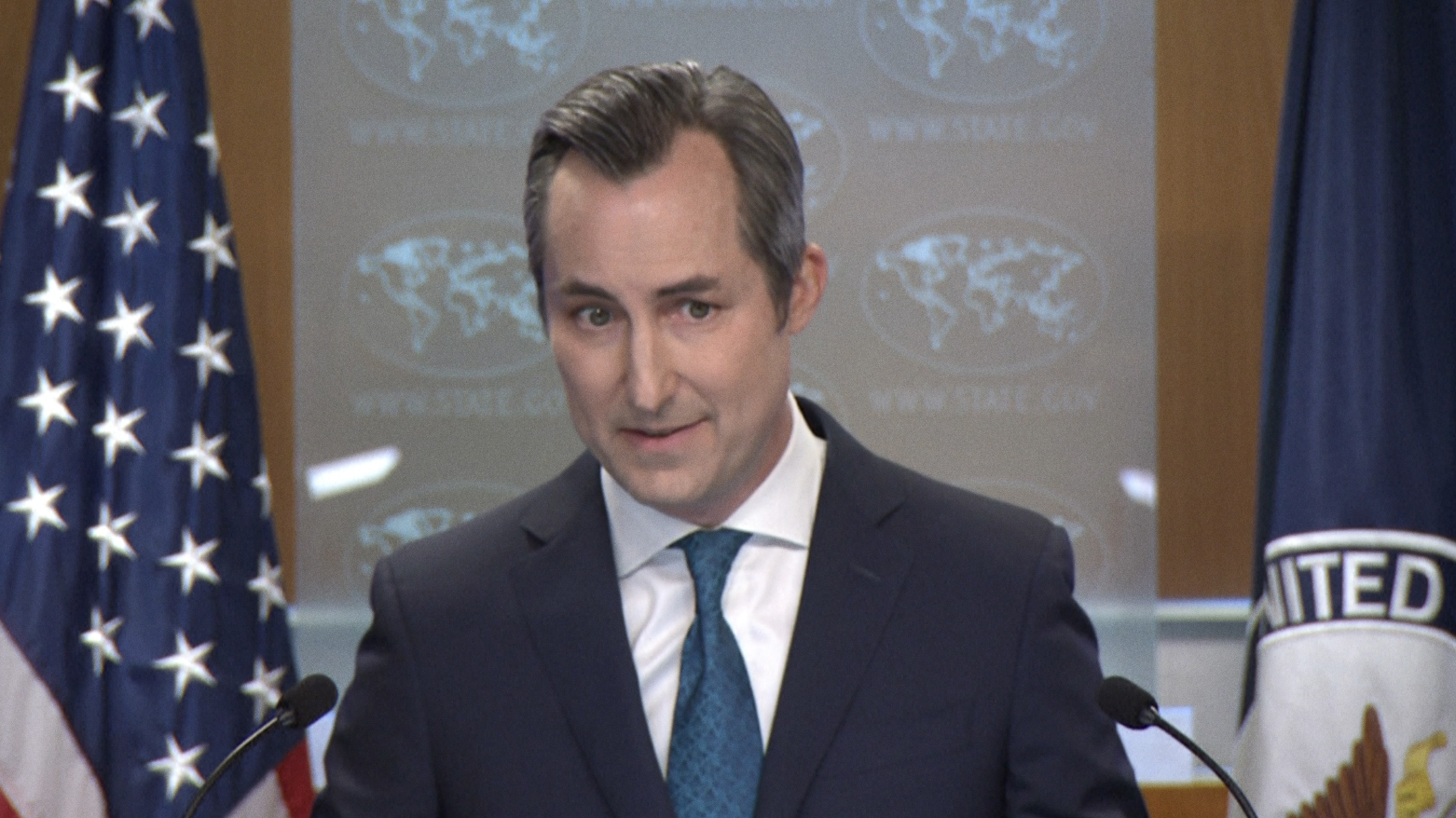US Again Calls on Turkey to Coordinate Military Ops with Baghdad, KRG
“We have urged the Government of Turkey to coordinate with Iraqi and IKR authorities on cross-border military operations and to protect civilians from harm.”

WASHINGTON DC, United States (Kurdistan 24) – Speaking to reporters on Monday, State Department Spokesperson Matthew Miller stated that Turkey should coordinate its cross-border military operations with the Iraqi government and with the Kurdistan Regional Government (KRG.)
The issue may arise later this week, as Turkish President Recep Tayyip Erdogan leads a delegation to participate in the NATO summit in Washington, marking the 75th anniversary of the founding of the alliance.
Back then, with the defeat of Nazi Germany during World War II, Soviet leader Joseph Stalin, who had been a war-time ally, exploited the ensuing power vacuum to extend Moscow’s control over eastern Europe.
Turkey came under pressure from Moscow, which wanted to control the Bosporus Straits and gain access from the Black Sea to the Mediterranean.
Thus, in 1952, Ankara joined NATO, three years after it was founded.
Most recently, Russia’s February 24, 2022 assault on Ukraine has given NATO renewed significance, with Finland and Sweden abandoning their long-standing neutrality and joining the alliance.
U.S. Position on Turkish Incursions
In key respects, in responding to the question at Monday’s briefing on the U.S. view of Turkey’s cross-border military operations, Miller repeated a position expressed last week by Deputy Spokesperson Vedant Patel.
Asked about civilian casualties resulting from Turkish military operations into the Kurdistan Region targeting the Kurdistan Workers’ Party (PKK), Patel affirmed “When we see civilians placed at risk, it is, of course, something of concern to us.”
Patel stressed that the U.S. was closely engaged “with our partners in Turkey” and we “make clear that when such kinds of strikes are being undertaken, that they need to be coordinated with authorities in the Kurdistan Region, as well as Iraq.”
Read More: US: Turkey Needs to Respect Civilians in Cross-Border Operations
On Monday, Miller explained, “We have urged the Government of Turkey to coordinate with Iraqi and IKR [Iraqi Kurdistan Region] authorities on cross-border military operations and to protect civilians from harm.”
That the State Department Spokesperson repeated what had been said the week before is strongly suggestive of the point that Ankara is not really listening to what Washington is saying.
Like Patel, Miller affirmed that the PKK was a threat. The U.S., as well as the European Union, have designated it a terrorist organization.
“We also recognize the ongoing threat posed by the PKK, but that said, we call on the Turkish Government to coordinate military operations with the government of Iraq, Kurdistan Regional Government, and other local authorities.”
Possibly, Erdogan will meet with U.S. President Joe Biden, while he is in Washington for the NATO summit, which runs for three days, from Tuesday through Thursday.
If such a meeting does occur, Biden could raise the issue of Turkey’s cross-border military operations and the need for better coordination with Baghdad and Erbil.
For his part, Erdogan is likely to press issues of his own. They include the long-standing Turkish complaint that the Kurdish-led YPG (People’s Protection Units), America’s main partner in the fight against ISIS in Syria, is a terrorist group, namely the Syrian wing of the PKK.
Erdogan might also press Turkey’s criticism of Israel in its war with Hamas in Gaza and the need for an immediate halt to the fighting there. He has taken a particularly strong position on that conflict, and Turkish media report that he will raise it at the summit—although neither Israel, nor Hamas, are NATO members.